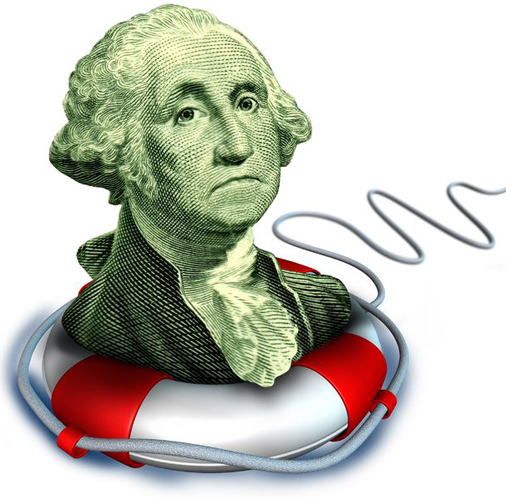It’s America Saves Week: Are You Prepared for an Emergency?
Happy America Saves Week! The Week is your annual opportunity to take action and either begin to save, or add to accounts you already have. Today we focus on saving for emergencies. If you do not have at least $500 in an account you can easily access, then today is your day to set up an account and start saving.
Emergency expenditures can range from the bill for an unexpected car repair, to living expenses that are tough to cover because of a layoff. According to a Federal Reserve Board survey, the typical low- and middle-income household says it desires $3,000 in “precautionary savings.” However, an emergency fund of as little as $500 can make a difference. One research report showed that low-income families with at least $500 in an emergency fund were better off financially than moderate-income families with less than this amount.
Where to Keep Your Emergency Savings
It’s usually best to keep emergency savings in a bank or credit union savings account. These types of accounts offer easier access to your money than certificates of deposit, U.S. Savings Bonds, or mutual funds. Keeping your money in a savings or share account also makes it much less likely that you will use these savings to pay for everyday, non-emergency expenses. That’s why it is usually a mistake to keep your emergency fund in a checking account.
Ways to Quickly Build your Emergency Fund
♦ Start with the loose change you accumulate. Americans typically save more than $100 in loose change each year.
♦ If you receive a tax refund or Earned Income Tax Credit, use a portion of this money to begin or increase savings. Since the Tax Credits average nearly $2,000, you may be able to open a savings or share account and still have plenty of money to pay off debts or cover other expenses.
♦ Try to deposit money saved by cutting back on small, unnecessary expenditures. Need help? Here are more than 50 ideas for reducing spending. These ideas range from packing a lunch, to switching from daily lattes to daily coffees, to not bouncing checks.
– See more at: http://www.americasaves.org/blog/776-it-s-america-saves-week-are-you-prepared-for-an-emergency#sthash.VzMvJ8UO.dpuf
Cary Silverman is a consummate entrepreneur having sold multiple companies during his 20 years of business experience in the financial industry, but for him, it isn’t about the money. His success is rooted in his passion to focus on doing something better today than it was done yesterday. These days, he’s the CEO of Waldo General, Inc. that oversees the operation of King of Kash.


